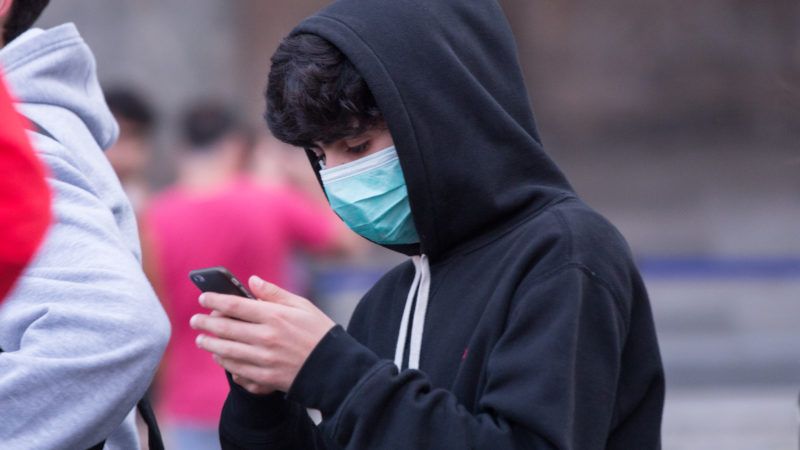Big Biotech Is Hustling...
Big Biotech Is Hustling
To Beat Coronavirus
People are panicking and sketchy information is spreading fast, but rapid vaccine and anti-viral deployment should blunt the epidemic's health and economic effects in the coming year.

(Matteo Nardone / Pacific Press/Newscom)
Coronavirus poses "low immediate risk" to Americans at this time, said Health and Human Services Sec. Alex Azar today in a press conference. But "ultimately we expect we will see community spread"—transmission from person to person, like an ordinary cold or flu—"in the United States. It's not a question of if this will happen, but when this will happen, and how many people in this country will have severe illnesses," said Nancy Messonnier, director of the National Center for Immunization and Respiratory Diseases.
The official death rate for folks infected with the virus, technically known as covid-19, stands at around 2.3 percent as of now, but there are reasons to question that figure. It is likely that most cases of the disease are mild and go undetected by medical personnel, which would suggest a much lower overall death rate. On the other hand, the prevalence of undetected mild cases suggests that the virus may already have slipped through efforts to quarantine carriers.
Biotech companies are racing to develop a vaccine against the new malady while others are testing their currently available anti-viral treatments to see if they can ameliorate the symptoms of infected people. The biotech company Moderna developed its vaccine against Covid-19 just 42 days after the company received the genetic sequence information on the coronavirus. The company has already delivered that vaccine to the National Institutes of Health for human trials whose results should be known by the end of April. Even if successful, a vaccine would not be widely available for at least a year.
Another avenue of attack would be to develop anti-viral drugs to treat folks who do become infected. Gilead Sciences' anti-viral drug remdesivir is being tested in two clinical trials in China now. Results from those trials should be available by the end of April.
The rush to develop vaccines and treatments won't immediately stop the spread of the virus, but the rapid global response should significantly blunt the epidemic's health and economic effects in the coming year.




Post a Comment